Bee populations have shrunk by nearly 30% in recent years. This has forced the entire beekeeping industry to go into crisis mode.
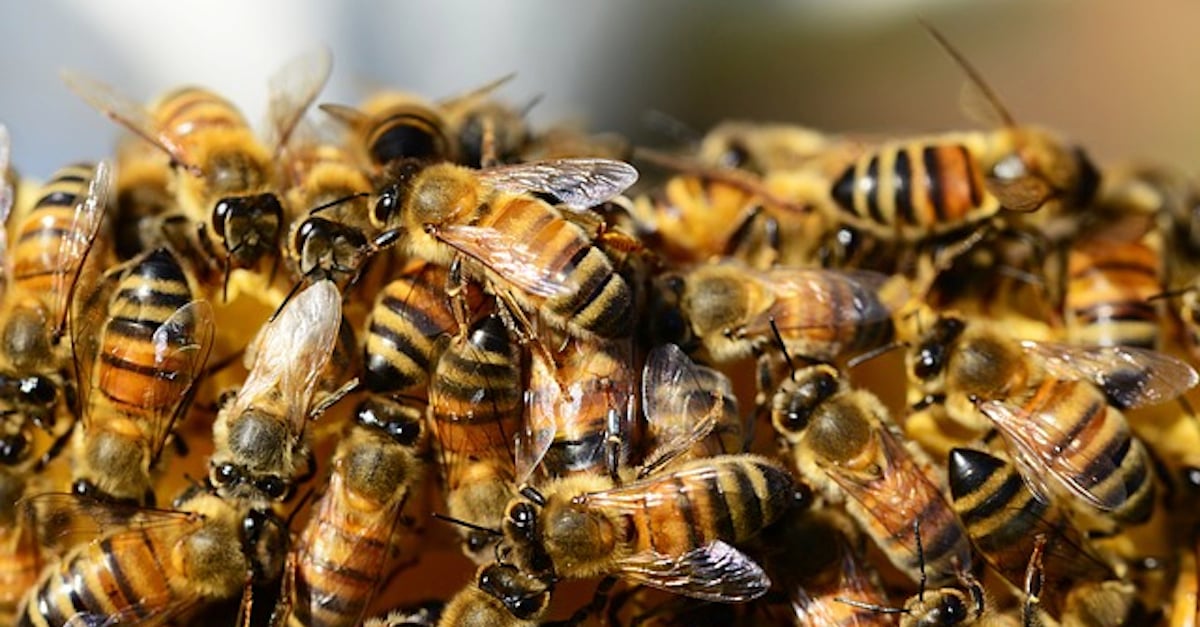
After getting stung when I was seven years old, I decided I didn't care for bees and didn't care to be around them.
Of course, bees are more than just flying, stinging nuisances. They are an incredibly important part of our ecosystem for a variety of reasons. Plus, not only do they provide us with honey, but artists have even used them to create incredible pieces of art.
Most importantly, however, is the fact that one third of everything humans eat depends on bee pollination. While there are plenty of other animals that pollinate, the sheer number of honeybees are essential for us to continue to consume fruits and vegetables. It's estimated that bees add 30 billion dollars to the global economy, and 16 billion in America alone.
To have these bees die out would be devastating to both our food sources and to our economy. To lose the bees is to lose our whole way of life.
It might sound dramatic, but it's true, as a new documentary called Vanishing of the Bees points out. Bees have been dying by the thousands, and it's looking like the trend won't stop.
Recently, 50,000 bees were found dead in Portland, and 37 million more were found dead in Ontario a week later. These are just two recent cases of mass deaths of bees to have been reported among a seven-year collapse in bee populations.
It's a fascinating phenomenon that you have got to see.
This phenomenon is called "Colony Collapse Disorder" and scientists are struggling to understand why it happens.
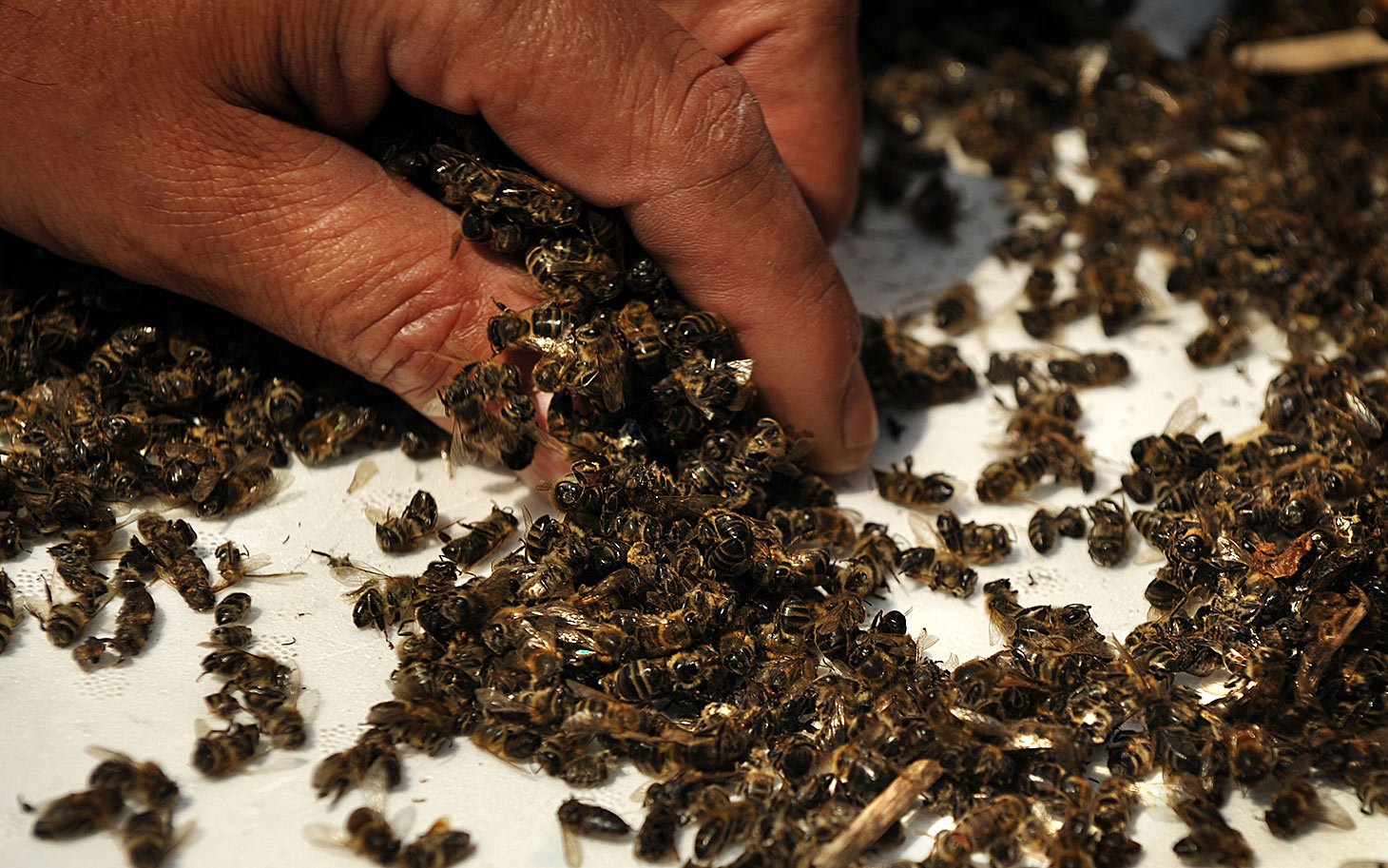
Bee populations have shrunk by nearly 30% in recent years. This has forced the entire beekeeping industry to go into crisis mode.
The United States government's Agricultural Research Service (ARS) has studied many of these collapsed bee colonies and found over 121 pesticides linked to their deaths.
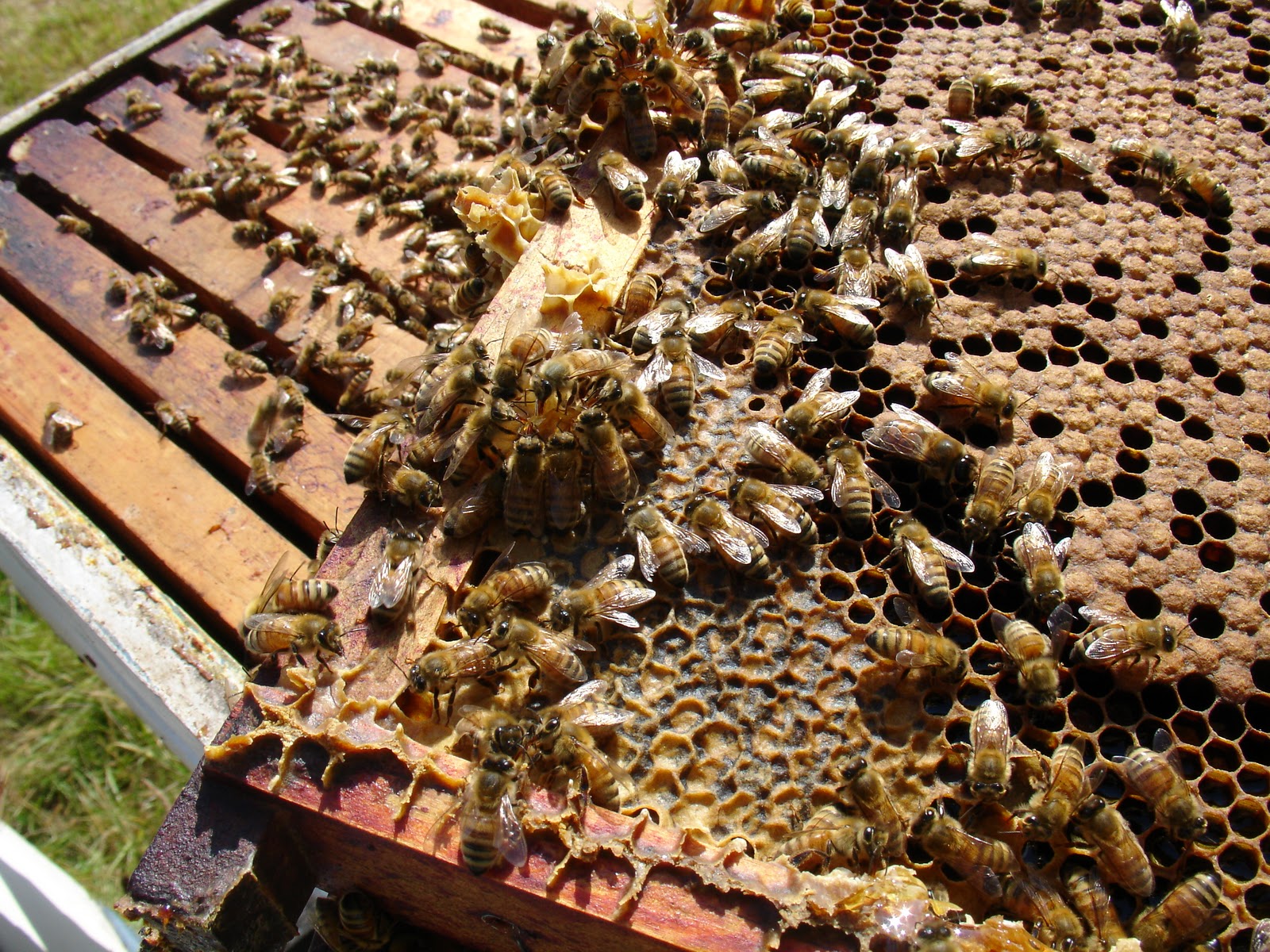
Repeated studies have shown that multiple exposures to pesticides are also harming the bees, who are essential for the continued reproduction of many plants.
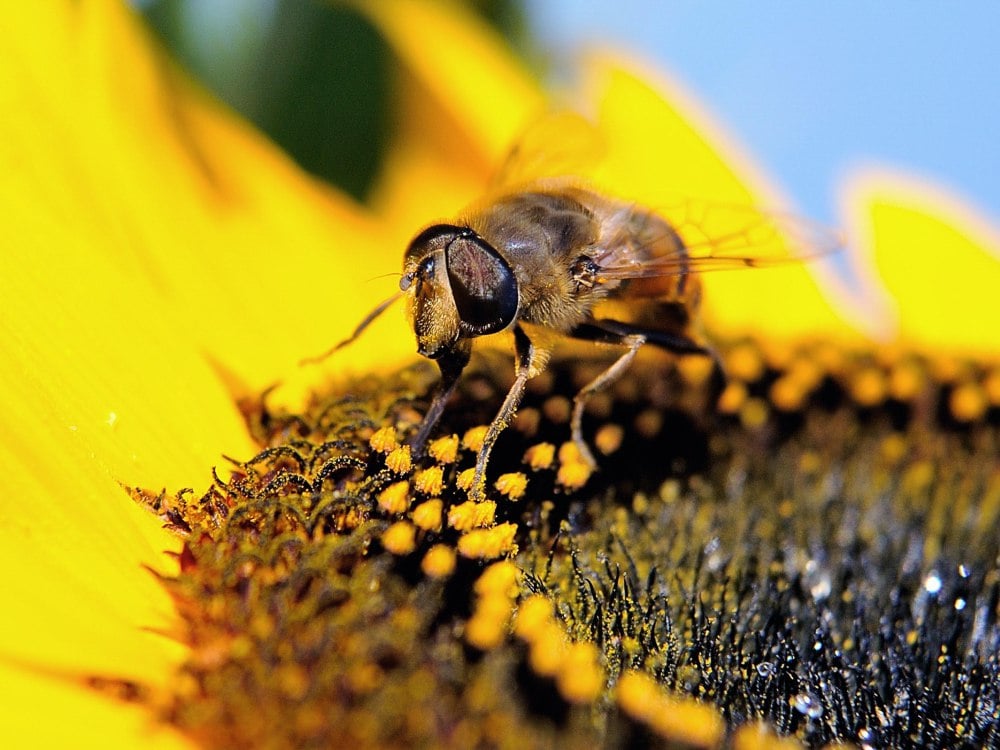
Protestors, like those pictured below, are demanding that pharmaceutical companies release their studies on the effects of their pesticides on honey bees so that scientists can pinpoint the exact cause.
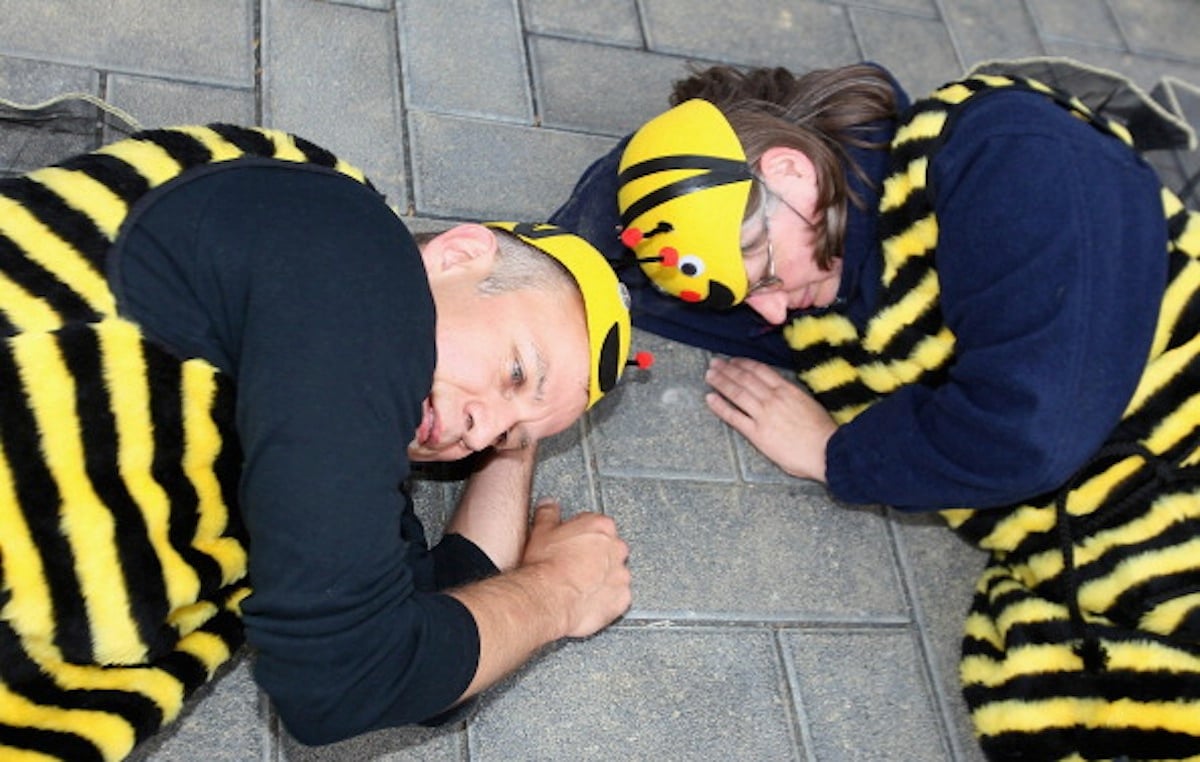
If something isn't done about the bee population declining, it could have a major effect on our economy.
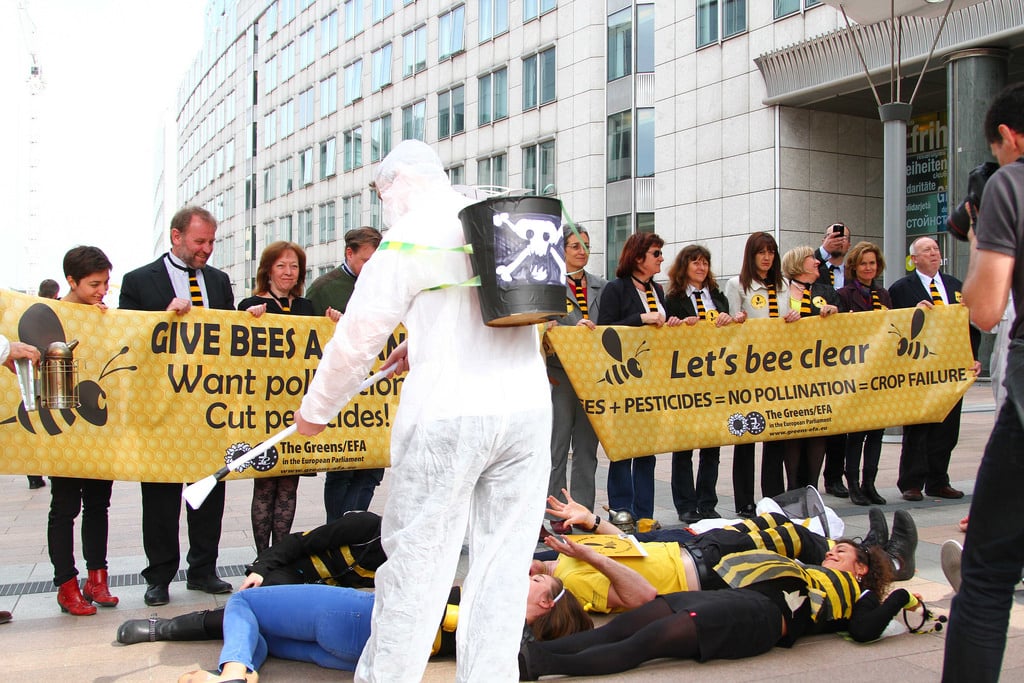
Watch the documentary's trailer below for more information, and please SHARE to help spread awareness of this issue!




